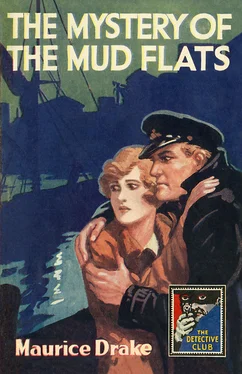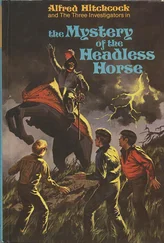When the land breeze had blown the smoke of the last hideous burning away out to sea I was on my beam-ends, so I cabled the governor: ‘Detained here for want of funds.’ I might as well have saved my money, for I ought to have known what the reply would be. ‘Capital experience. Pitch in and earn some, my son,’ he cabled back.
A hard case, my old man. That’s him all over. Nobody else in the world would have paid for those two unnecessary words at the end, just to show it wasn’t because he was short of cash that he wouldn’t help me.
The relief gangs had broken up and the sailors and most of the tourists departed—and there was I in a suit of rags, my hair about four inches long, and not a notion of what to do next. It was the long hair decided me, I think. I hunted up my nigger carpenter and got him to build me a little lean-to shack against the ruins of the Presbyterian church, promising to pay him when I could. Then I got a sheet of tin, painted a gaudy Chinese dragon on it with the words:
PROF. WATSON
TATTOOING ARTIST
and nailed it up over my door. I copied the dragon from the cover of a packet of Chinese crackers that was blowing about on a rubbish heap, and tattooing anybody can do, if they’ve got the sense to keep their needles clean.
As luck would have it, I hadn’t long to wait for customers. In fact I was busy from the first day. When the shipping began to ply regularly again there were heaps of tourists to see the ruined town, and lots of them came to be tattooed as a souvenir of their visit. One chap gave me a photo of my shack, with me outside it at work on a sailor’s arm. I begged the negative of him, had a few hundreds printed as postcards, and used to make a shilling apiece out of them. Things just boomed. I paid my carpenter and set him at work on a little frame house in a plot I hired, and when it was done I shifted my sign there and settled down to business in earnest. Then I got an assistant—a young Japanese from a sailing ship that had been wrecked on Culebra, in the Virgin Islands. He really was an artist, that chap, and his work put me out of conceit with my own botching. So after two years I sold him the house and business, lock, stock and barrel, and cleared out for home. As a souvenir he did a bit of his best work on my chest whilst I was waiting for my steamer. A lovely bit of tattooing it is: a masterpiece, an eagle holding a fish.
I landed in Plymouth with about six hundred pounds in my pocket, and knocked it down in two years. Lazy, lovely South Devon held me. I was fool enough to let the old man’s cablegram rankle, and I never went near him—just sent him a card to say where I was, which he answered with another, and that’s all the communication we held with one another. I loafed about from one place to another, idling, drinking more than was any use to me, and generally wasting my time. I’d earned six hundred pounds as easily as falling off a log, and thought it would be easy enough to earn another lot when that was gone.
There’s a class of man common on the south coast of England, and especially in Devonshire, who is no manner of use to himself or anybody else. The natives call them remittance men, and that exactly describes them. They’re idlers, mostly sons of busy professional men or manufacturers in London, the Midlands or the north. They idle more or less gracefully; they go fishing and sail small boats, or get drunk and sleep in the sun. They’re very little use to anybody, as I’ve said already, and I wouldn’t mention them if I hadn’t lived with them—been one of them, if you like. They were my only associates for two years, and they and sleepy South Devon brought me down to sleeping out on Exmouth beach.
It was just after Christmas when I landed at Plymouth, and by the spring I’d got tired of messing about and fuddling in a garrison town and thought I’d like a bit of sailing for the summer. Of course every waster I’d picked up with knew of the very boat that would suit me, and I should think I inspected half the rotten tubs in Devon and Cornwall before I found the packet I wanted.
I only heard of her by accident. A boat-builder at Yealmpton had built her as an experiment to the order of his brother-in-law, who was a fisherman in the Brixham fleet. The brother-in-law—a man with more notions in his head than money in his pocket—had died bankrupt before his boat was rigged, and the Yealmpton man had her left on his hands, and half the south Devon coast was laughing at him, for it appeared she was useless to anybody, being the wrong build for a trawler and too small for a coasting boat.
I went over and saw her one Saturday afternoon and fell in love with her on the spot. Her hold, too small for freights, was amply big enough for me, and besides it left more cabin room at each end of her. She was a beauty, to my thinking; a good, beamy boat, not too deep in draught, and built like a house. The builder, normally an honest man, in building for his sister’s husband had put real good stuff into the boat. The day I was there two other fellows had come down from Brixham to see her and were jeering at her, to cheapen her, I suppose. The builder was raving her praises, and I got into his good graces at once by speaking the truth, saying that she was a well-built craft, honest material and honest work in her.
That was the way to tackle the man, for he’d put his heart into her timbers. The other two sheered off and I bought her, hull and masts only, as she stood, for a hundred and ten pounds, and she was dirt cheap at the price. For another hundred he rigged her, fisherman fashion, rough hard gear throughout to stand any weather, divided her hold with cheap matchboard bulkheads into a saloon with two cabins, and decked over her hatch with four skylights. And I got to sea with her, well-pleased, before the middle of June.
Brett had named her the Luck and Charity , of all outlandish names, but I didn’t bother to change it. Sure enough she brought me luck in the end—the best of luck—and at first she was a charity to the fraternity of wasters, and no mistake.
With her hold turned into cabins she was a very roomy packet. Though she was only forty-five feet or so between the perpendiculars, she was fifteen in the beam, every inch. There was a little skipper’s cabin aft, about twelve feet by nine, with just head-room enough to stand upright, two bunks and a flap table; the big square hatch we decked over was about eight feet by thirteen, and there was a roomy forepeak—almost fit to be called a forecastle—with two bunks on each side. Altogether we could shake down ten men without crowding, though I’ve often slept fifteen aboard, the extra members of the family sleeping on the cabin seats or on the floor.
It was an idle time, those two years, but past question I enjoyed it. The wasters were delighted, of course, and I was the dearest old chappie in the west of England whilst funds lasted. It worked out about level, though; they had cheap quarters and I had a cheap crew, so everybody was pleased. We put to sea or stayed on moorings just as the weather served or the whim took us, so mostly we had fair-weather cruising. Ashore, there was plenty of company. There’s a freemasonry of sorts amongst remittance men: they snarl behind each other’s backs pretty much, but can unite upon occasion. I happened to be the occasion this time, and there was plenty of visiting, and card-playing, and fuddling, and remarkably mixed company whenever we went ashore to revel.
The first winter I tied her up in Teignmouth harbour and lived ashore, and when the spring came started off again. Not being built for a yacht the Luck and Charity wanted a lot of ballast, but she wasn’t too deep for getting in and out of those little west of England harbours, and by the end of the second summer I knew the coast from Swanage to Land’s End like the back of my hand. And very useful knowledge it has proved to be since then.
Читать дальше












